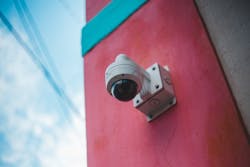In an ideal world, your relationship with every single one of your customers would be honest, upfront and beneficial for both parties.
Unfortunately, that isn’t always the case.
Often reserved for instances in which a customer tries to falsely claim back a charge on their credit card, the term friendly fraud refers to any instance in which a customer is dishonest about services or damages in an attempt to get a free service.
Friendly fraud is anything but friendly, and it’s becoming increasingly prevalent in all sectors of the economy—according to B2B service Chargeback Gurus, banks report anywhere between 17 and 32 percent of chargebacks are instances of friendly fraud.
Though it’s important not to view customers as enemies, it is important to make sure your shop is properly equipped to fight back against fraudulent claims of malpractice.
Ryan Benning, a service leader for Bobby and Steve’s Auto World in Minneapolis, Minn., says his shop has implemented several easy-to-use measures to help keep customers happy and his shop safe from baseless complaints.
The Challenge
It’s almost impossible to predict when a customer will attempt to make a fraudulent claim of malpractice.
Being suspicious of and defensive toward every customer is borderline impossible and would create an actively negative environment in your shop, but not taking proactive measures in your shop to prevent fraudulent claims makes it easier for the customers who do take advantage to get away with it.
How, then, do you adequately equip your shop and your staff to combat fraud while still maintaining a positive relationship with your customer base?
The Solutions
Smile for the Cameras
The best way to prevent a customer from trying to get away with a fraudulent claim is to let them know you’re watching.
“We’ve had people make all kinds of claims, from ‘Hey, you damaged my fender,’ to ‘This scratch wasn't here before,’” Benning says, “which is why we have cameras. We actually have them in the service bays and we have them outside the building. So it covers many different areas of angles of our facility.”
Benning joined Bobby and Steve’s after security cameras had been installed, but he says most security camera providers make installation and servicing cameras fairly easy.
Better still, most systems are intuitive, and finding video in the case of a claim has never been easier.
“With our system, you log in (on a central computer), search for the right camera and then filter through clips if you have the date and time,” Benning says. “Then you basically just hit play and watch.”
In addition to preventing fraud, security cameras are a fairly cheap and effective way to deter other crime in and around your shop.
According to the University of Tennessee’s Municipal Technical Advisory Service, security cameras have been shown to reduce vehicle crimes and are “most effective when combined with other crime reducing/deterring methods.”
A quick analysis of pricing from security companies such as ADT and Home Guide shows the average cost of equipment and installation starts right around $1,000 per camera, and subscriptions to security services such as ADT start around $50 per month.
Though it fortunately isn’t too common of an occurrence, Benning says cameras have helped his shop refute fraudulent damage claims on a fairly regular basis.
“We've had to use it a few times where ... someone said, ‘Hey, this damage was not here (on my car) before.’ We have video of them pulling into the parking lot, and you can visibly see the damage with the cameras. It’s incredibly easy to then say that wasn’t done here.”
Keep Airtight Books
As the University of Tennessee study says, cameras are far more effective when combined with other methods.
As outlined in “Curating the Customer Service Experience,” keeping in-depth customer records can be a boon to your shop for a number of reasons; helping fight fraud is one of those.
“You’ve got to have better documentation, even if you do have the cameras,” Benning says.
Keeping detailed service records of when a car was in the shop, as well as itemized lists of every service done to a car and product put in, makes it easier to show a customer what your techs did, and more importantly in this case, what they didn’t do to the car.
The Aftermath
Benning says instances of customers attempting to commit friendly fraud are, fortunately, very rare at his shop. He estimates false claims happen maybe once every quarter.
Even though they don’t happen very often, he says being able to combat those can help save your employees time and energy, and it can keep your shop’s reputation high.
“I don't think most people know we have cameras,” Benning says, “but there have been times when you let them know and they (suddenly) don't want to pursue a claim any further. That's happened as well.”
The Takeaway
A large majority of customers are honest—in the worst-case scenario according to the Chargeback Gurus report, 70 percent of chargeback claims are legitimate. Most people just want their cars serviced quickly and efficiently.
However, there will always be a few that try to take advantage of your shop, and being equipped to deal with those customers as objectively and effectively as possible is crucial.
Benning says having security systems such as CCTV cameras helps remove another barrier and allows your shop to be more trusting of its customers, which is always a positive.
“I think it's good for both the business itself and for the customer to create that trust,” Benning says. “Having any of those methods that allow you to show objectively what you did and didn't do makes it so that customers feel comfortable coming back.”

